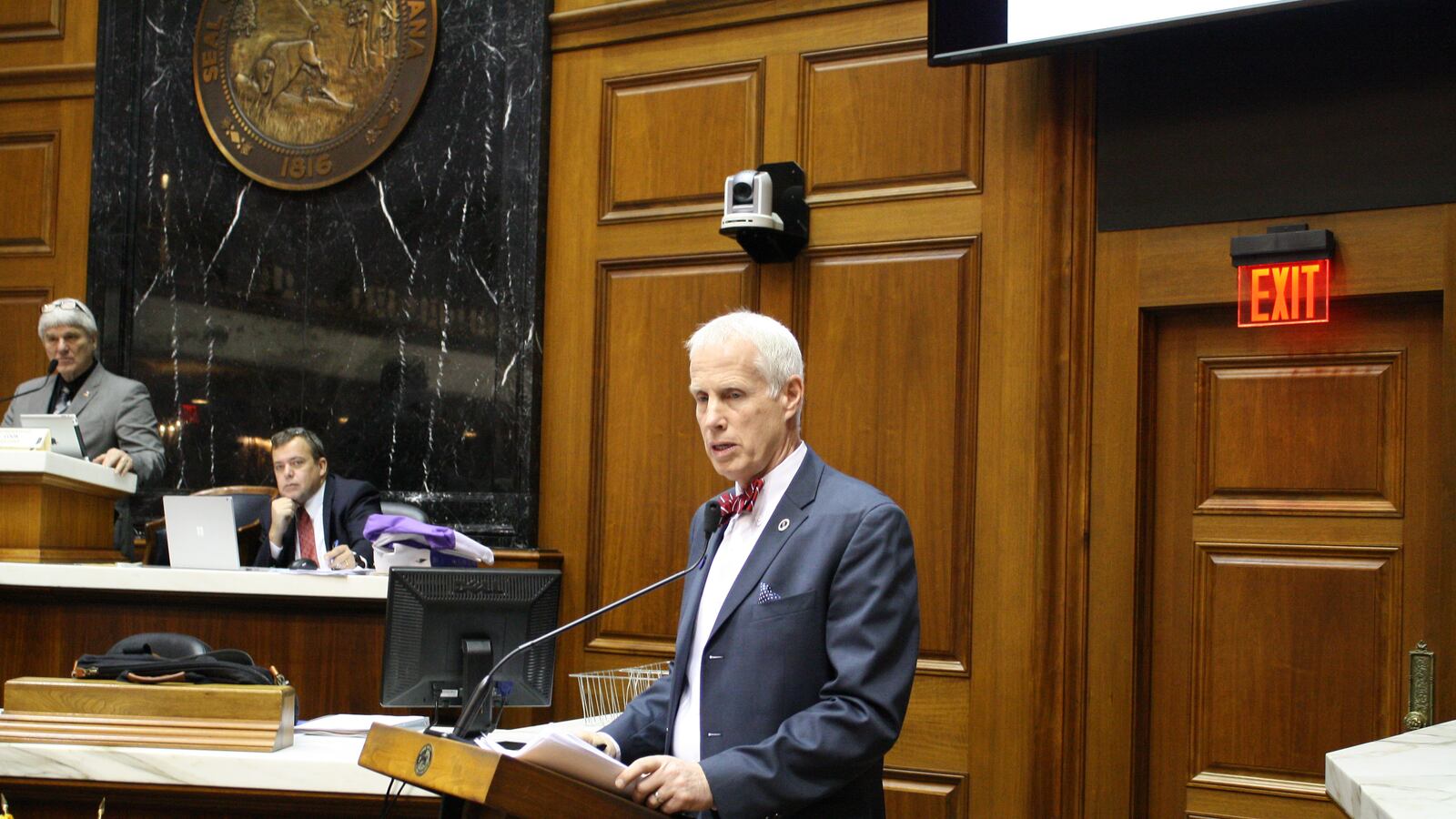A proposal to allow schools and districts to waive state education rules in the name of innovation is the latest Indiana legislation with ties to one of the nation’s most influential conservative organizations.
Rep. Bob Behning, the Republican chairman of the House Education Committee, proposed the bill as a way to give school districts more flexibility to determine what students learn and how they spend their time. Up to eight districts would have a chance to form “coalitions” next year and submit their education plan to the Indiana State Board of Education for approval.
“Bringing these like-minded districts together is really like creating a think tank,” Behning said of the proposal, known as House Bill 1398.
Behning said the idea was brought to him by a superintendent from the rural Batesville school district and inspired by a Kansas program. That program stemmed from a model law written by the American Legislative Exchange Council, known as ALEC, according to reporting by KCUR.
ALEC is made up of conservative lawmakers from across the country as well as business leaders, many of whom also fund the organization’s work. ALEC members jointly write sample laws that legislators can then advance in their own states.
The Indiana bill doesn’t go as far as ALEC’s 2013 “Innovation Schools and School Districts Act,” which suggests districts consider adjusting their testing and accountability rules. Under the proposed Indiana law, districts would be able to waive some teacher licensure rules and course requirements, such as taking Algebra 2, which a number of school leaders testified this week was burdensome for students not headed to college.
ALEC has had considerable influence in Indiana, inspiring fierce opposition from teachers unions and school choice critics. Several key lawmakers, including Behning, have participated in the group, and elements of its model laws have inspired education policy changes in the state in recent years. ALEC has also sought to promote Indiana’s laws on charter schools and private school vouchers nationally, even naming its model legislation for school choice programs the “Indiana Education Reform Package.”
Most of the districts whose leaders testified in favor of the bill on Tuesday were small, rural districts that want to expand out-of-school internships. Superintendents said students did not have time to pursue career-focused programs because of required high school classes — requirements the proposed law could do away with.
In that case, Behning said, students “are going to have to figure out other ways to demonstrate competency or mastery other than a specific course.”
The broader issue for those districts — making sure school is preparing students for available jobs — is one that has become a focal point for education policy in the state this year. Gov. Eric Holcomb, state Superintendent Jennifer McCormick, and Republican legislative leaders have all made job readiness the center of their 2018 policy agendas.
It’s an issue with bipartisan support, although several Democrats spoke against it. The bill is co-authored by House Minority Leader Terry Goodin, a Democrat who leads Crothersville Public Schools. Goodin said the bill would give “schools the flexibility to take the next step up,” particularly in their work-based learning programs.
Other lawmakers and advocates pointed out that districts are already able to collaborate and form partnerships with local companies.
“It’s not clear why this bill is necessary,” said John O’Neal, a lobbyist for the Indiana State Teachers Association. “We now have, in addition to our community-based public schools, we have innovation schools, transformation zones, freeway schools, voucher schools, state board turnaround schools, homeschools … this is another model, and every legislative session we have a new model proposed.”
The bill passed committee and next heads to the House floor for amendments and a final vote before moving over to the Senate.

